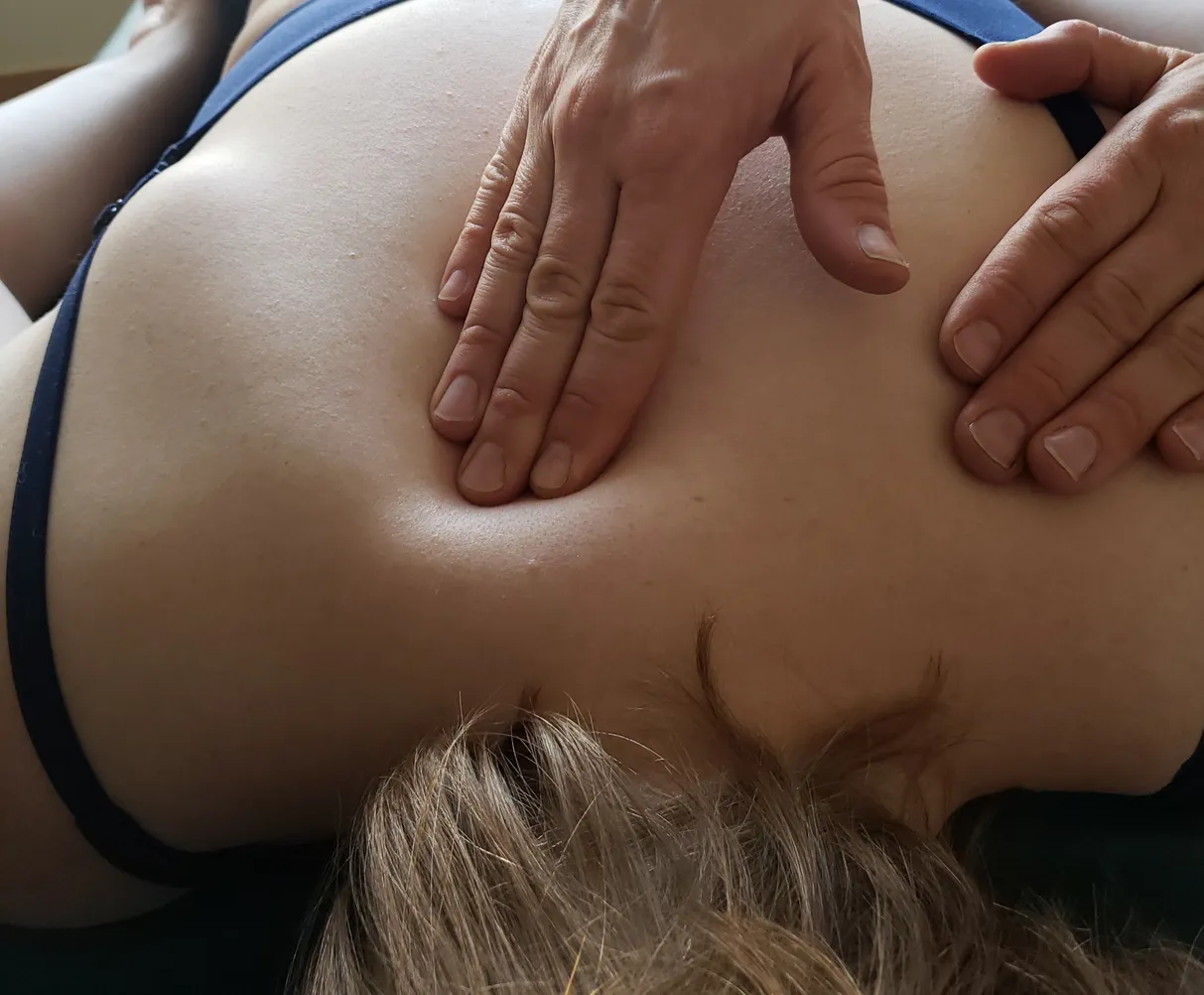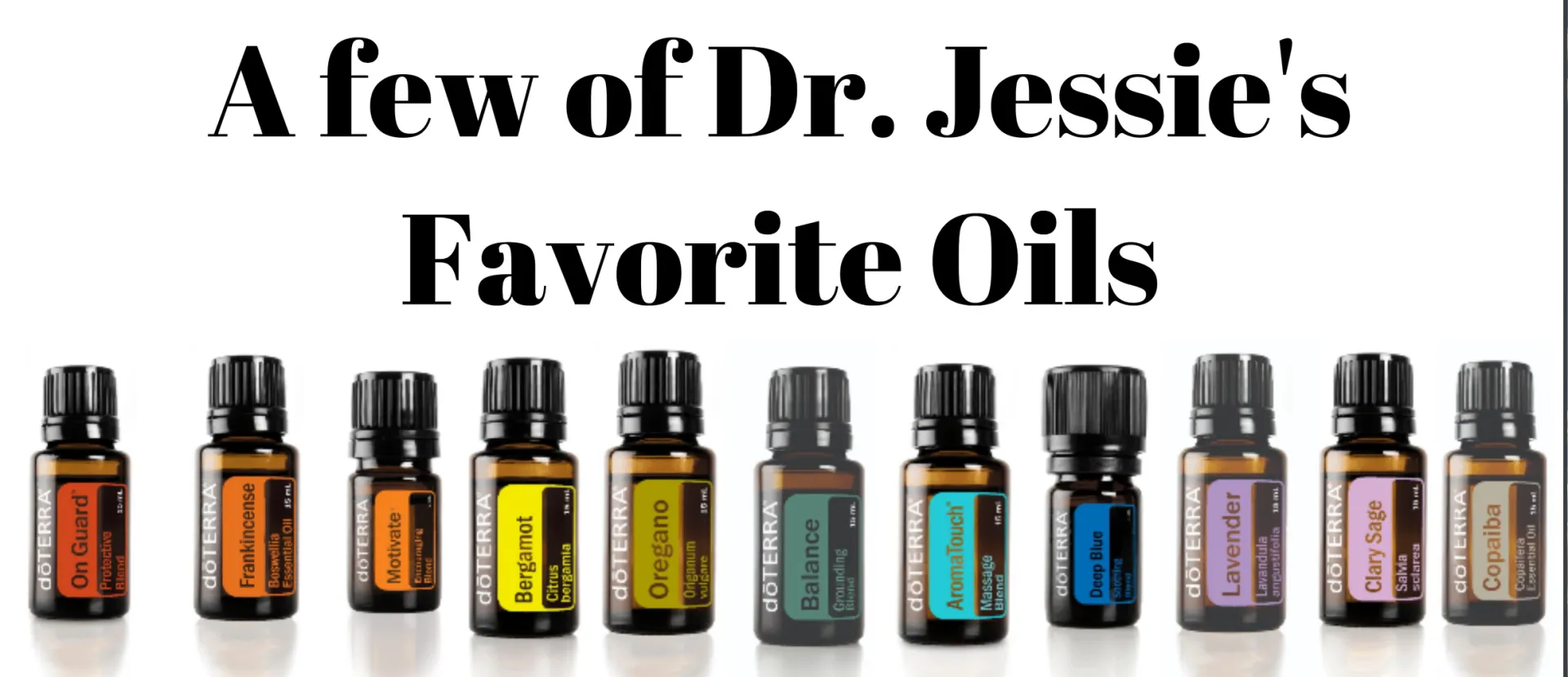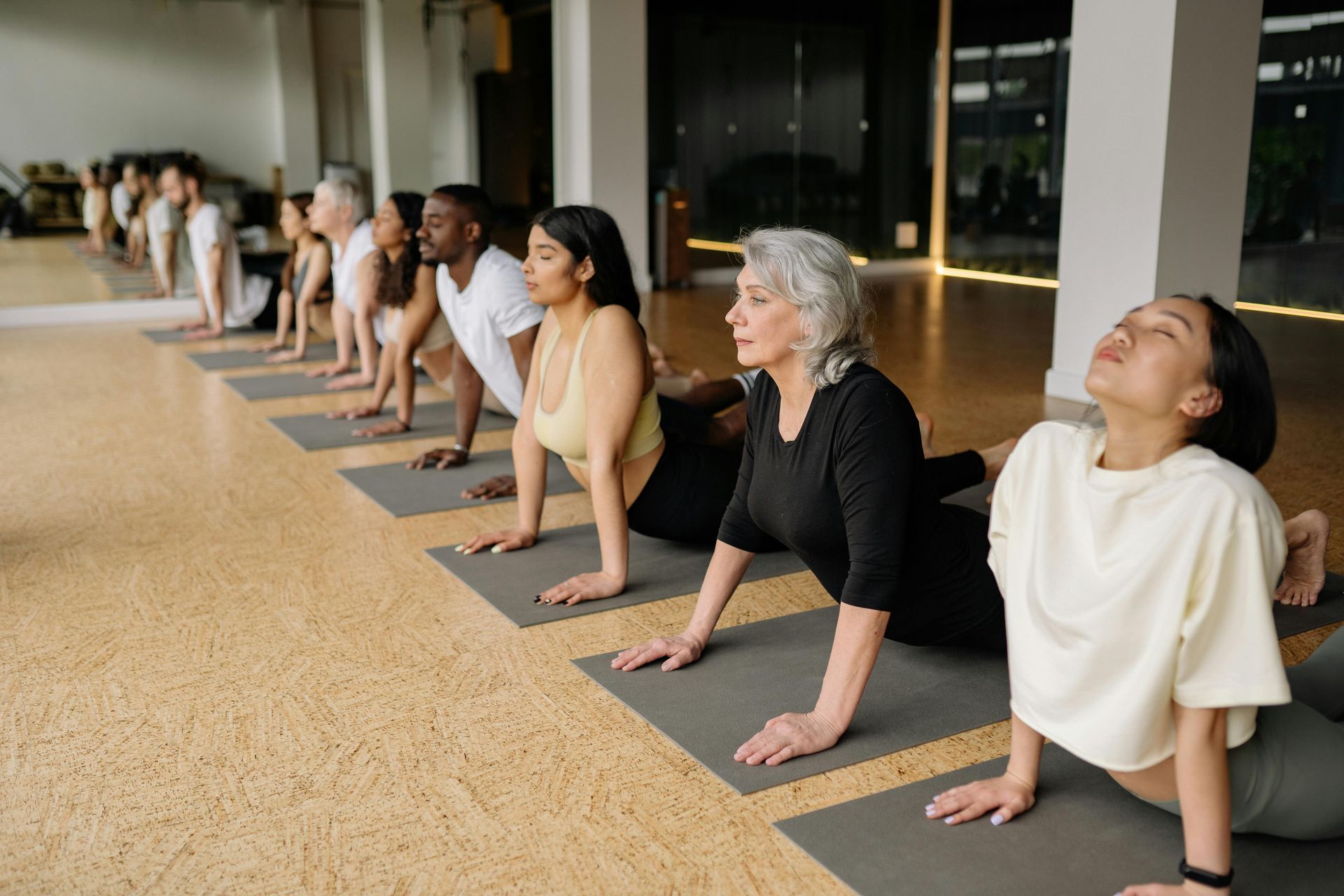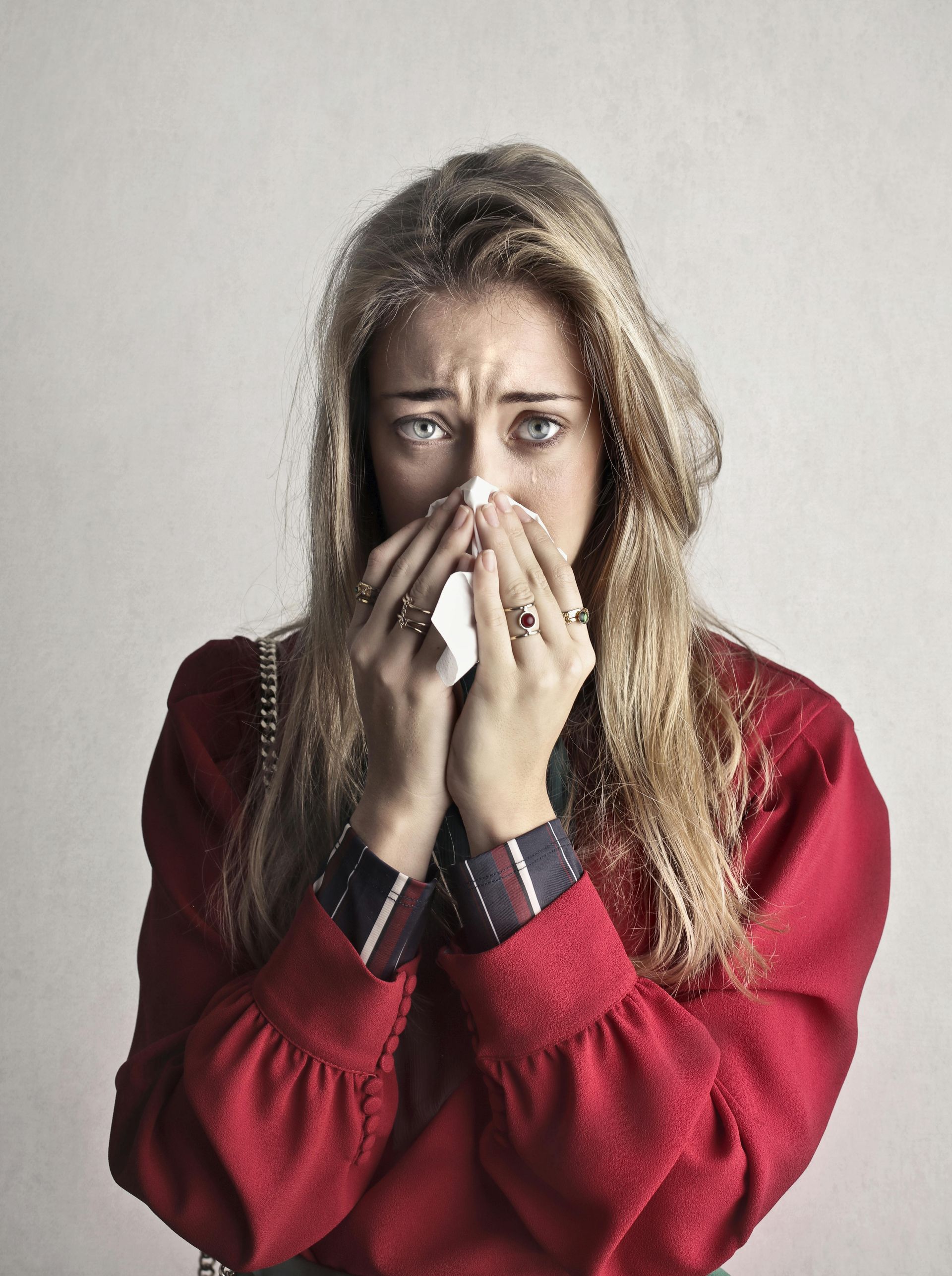As a Doctor of Physical Therapy at The Healing Collective Functional & Integrative Medicine, I love integrating oils into my practice for its aromatic effects as well as the physiological effects for my clients. Some of my top favorite oils (it's hard to choose because I have a different favorite for each condition I treat! ) include Copaiba, Melissa, Marjoram, Lavender, Frankincense, Clary Sage, and the Deep Blue & Balance blends. So if you are a current patient and would like to integrate aromatherapy into your appointment, just ask! It's free of charge.
The Art & Science of Essential Oils
I (Dr. Jessie) have been working with high-quality essential oils since 2013 when I was first introduced to what is still my favorite DoTERRA blend called Balance. I was interning at the Physical Therapy department at a hospital in my hometown and was offered a free sample vial of Balance by one of my coworkers after I had been sharing about my stress levels and the pressures of being a medical student. I fell in love with the immediate effects (and of course the delightful aroma!) and have been using essential oils ever since.
The scientific community has increasingly been investigating and affirming the positive benefits of aromatherapy, and with good reason. Aromatherapy has been utilized for thousands of years, and it is exciting to see the modern western world acknowledging its benefits from conditions ranging from Insomnia to Anxiety, Depression, Nausea, Low appetite, Dry Mouth and more.
The oils I use are the highest quality available, appropriate for even those who have chemical sensitivities. Please inquire for more information.
And for those of you who are curious about some of the research and clinical findings, this next section is for you.
THE EVIDENCE FOR ESSENTIAL OILS
A 2017 clinical trial in the ICU of a hospital showed that "aromatherapy alleviated stress and improved sleep quality in intensive care unit patients after 2 days of the experimental treatment. These results demonstrate that aromatherapy affects stress and sleep quality, thus indicating its value in nursing interventions." -Cho, Lee & Hur 2017
In another hospital-based study, you may be surprised to learn that yes, Lavendar did improve sleep and reduce stress but Bergamot essential oil had the strongest results for sleep and stress for these inpatient surgical patients.
Other essential oils that have been found to be helpful for stress & sleep include Clary Sage, Roman Chamomile, and Neroli.
In December of 2018, Choi's study investigating the anti-viral activity of 62 different essential oils "demonstrated anti-influenza activity in 11 essential oils ... with marjoram, clary sage and anise essential oils being the most effective at reducing visible cytopathic effects of the A/WS/33 virus. All 3 oils contained linalool, suggesting that this may have anti-influenza activity." Hammer Karson and Riley et al found that "Lemongrass, oregano, and bay inhibited all organisms [Acinetobacter baumanii, Aeromonas veronii biogroup sobria, Candida albicans, Enterococcus faecalis, Escherichia col, Klebsiella pneumoniae, Pseudomonas aeruginosa, Salmonella enterica subsp. enterica serotype typhimurium, Serratia marcescens and Staphylococcus aureus] at concentrations of < or = 2.0%."
A recent 2020 review describes how Essential Oils (EOs) "have shown wide-spectrum antimicrobial potentials via targeting the major determinants of pathogenicity, drug-resistance and its spread including cell membrane, drug efflux pumps, quorum sensing, biofilms and R-plasmids. Latest reports confirm the EOs having strong direct-killing or re-sensitizing potentials to replace or rejuvenate otherwise fading antibiotics arsenal." (Yu, Tang and Khare et al, 2020)
There is obviously much more research to be done, but the preliminary results have been promising. Scan the resources below for even more studies to browse.
HOW DO I GET QUALITY OILS?
Getting HIGH-QUALITY oils is essential (no pun intended), as the FDA does not regulate what additives or chemical fillers go into oils. I have used and trust DoTERRA oils since I was first introduced to them back in 2013. If your oils are cheap, you can almost guarantee that they are filled with chemical additives or rancid carrier/filler oils: it "saves" companies money to add things to the oils to "stretch" them, but it is always at a cost to health. One way you can check is to smell the oils -- this takes some training as many of us get used to smelling--and even preferring--rancid oils (for example, most of the olive oil consumed in the USA is rancid). Or, choose to purchase oils from companies that you trust, that go the extra length to ensure pure and therapeutic, food-grade oils.
You can shop for the top-quality essential oils through my link here or reach out for more information!
RESOURCES
Ayik C, Özden D. The effects of preoperative aromatherapy massage on anxiety and sleep quality of colorectal surgery patients: A randomized controlled study. Complement Ther Med. 2018;36:93‐99. Accessed 1 June 2020. Available online: https://pubmed.ncbi.nlm.nih.gov/29458940/
Barati F, Nasiri A, Akbari N, Sharifzadeh G. The Effect of Aromatherapy on Anxiety in Patients. Nephrourol Mon. 2016;8(5):e38347. Published 2016 Jul 31. Accessed 1 June 2020. Available at: https://www.ncbi.nlm.nih.gov/pmc/articles/PMC5111093/
Bharkatiya M, Nema RK, Rathore KS, Panchawat S. Aromatherapy: short overview. Int J Green Pharm.2008;2(1):13–6.
Cavanagh HM, Wilkinson JM. Biological activities of lavender essential oil. Phytother Res. 2002;16(4):301–8.
Cermelli C, Fabio A, Fabio G, et al. Effect of eucalyptus essential oil on respiratory bacteria and viruses. Curr Microbiol.2008;56(1):89–92.
Cho EH, Lee MY, Hur MH. The Effects of Aromatherapy on Intensive Care Unit Patients' Stress and Sleep Quality: A Nonrandomised Controlled Trial. Evid Based Complement Alternat Med. 2017;2017:2856592. Accessed 1 June 2020. Available Online: https://www.ncbi.nlm.nih.gov/pmc/articles/PMC5742427/
Cho EH, Lee MY, Hur MH. The Effects of Aromatherapy on Intensive Care Unit Patients' Stress and Sleep Quality: A Nonrandomised Controlled Trial. Evid Based Complement Alternat Med. 2017;2017:2856592. Accessed 1 June 2020. Available Online: https://www.ncbi.nlm.nih.gov/pmc/articles/PMC5742427/
Cho MY, Min ES, Hur MH, Lee MS. Effects of aromatherapy on the anxiety, vital signs, and sleep quality of percutaneous coronary intervention patients in intensive care units. Evid Based Complement Alternat Med. 2013;2013:381381. Accessed 1 June 2020. Available at: https://pubmed.ncbi.nlm.nih.gov/23476690/
Choi HJ. Chemical Constituents of Essential Oils Possessing Anti-Influenza A/WS/33 Virus Activity. Osong Public Health Res Perspect. 2018;9(6):348‐353. Accessed 1 June 2020. Available online: https://www.ncbi.nlm.nih.gov/pmc/articles/PMC6296812/
Gujral H. Aromatherapy: Do Essential Oils Really Work? Johns Hopkins Medicine Health. Accessed 1 June 2020. Available online: www.hopkinsmedicine.org/health/wellness-and-prevention/aromatherapy-do-essential-oils-really-work
Hammer KA, Carson CF, Riley TV. Antimicrobial activity of essential oils and other plant extracts. J Appl Microbiol. 1999;86(6):985‐990. Accessed 1 June 2020. Available Online: https://pubmed.ncbi.nlm.nih.gov/10438227/
Itai T, Amayasu H, Kuribayashi M, Kawamura N, Okada M, Momose A, et al. Psychological effects of aromatherapy on chronic hemodialysis patients. Psychiatry Clin Neurosci.2000;54(4):393–7.
Kanany M, Mazloom R, Emami A, Mokhber N. Lavender essential oils fragrance therapeutic effect on anxiety of patients undergoing hemodialysis. J Nurs Midwife.2011;10(3-4):63–71.
Karaman T, Karaman S, Dogru S, et al. Evaluating the efficacy of lavender aromatherapy on peripheral venous cannulation pain and anxiety: A prospective, randomized study. Complement Ther Clin Pract. 2016;23:64‐68. Accessed 1 June 2020. Available online: https://pubmed.ncbi.nlm.nih.gov/27157961/
Kim M, Kwon YJ. Effects of aroma inhalation on blood pressure, pulse, visual analog scale, and McNair scale in nursing students practicing intravenous injection at the first time. Int J Adv Sci Technol.2010;23(2):61–8.
Meepagala KM, Sturtz G, Wedge DE. Antifungal constituents of the essential oil fraction of Artemisia dracunculus L. Var. dracunculus. J Agric Food Chem. 2002;50(24):6989‐6992.
Kutlu AK, Yılmaz E, Çeçen D. Effects of aroma inhalation on examination anxiety. TLN.2008;3(4):125–30.
Nasiri A, Mahmodi MA. Aromatherapy massage with lavender essential oil and the prevention of disability in ADL in patients with osteoarthritis of the knee: A randomized controlled clinical trial. Complement Ther Clin Pract. 2018;30:116‐121. Available Online: https://pubmed.ncbi.nlm.nih.gov/29389470/
Özlü ZK, Bilican P. Effects of Aromatherapy Massage on the Sleep Quality and Physiological Parameters of Patients in a Surgical Intensive Care Unit. Afr J Tradit Complement Altern Med. 2017;14(3):83‐88. Published 2017 Mar 1. Accessed 1 June 2020. Available online: https://pubmed.ncbi.nlm.nih.gov/28480419/
Perez C. Clinical aromatherapy. Part I: An introduction into nursing practice. Clin J Oncol Nurs.2003;7(5):595–6.
Sahebalzamani M, Khanavi M, Alavimajd H, Mirkarimi SM, Karimi M. Effects of inhalation aromatherapy on female students' anxiety and depression settling in dormitory of Tehran University of Medical Sciences. Islamic Azad Univ Med Sci J .2010;20(3):175–81.
Salamati A, Mashouf S, Mojab F. Effect of Inhalation of Lavender Essential Oil on Vital Signs in Open Heart Surgery ICU. Iran J Pharm Res. 2017;16(1):404‐409. Accessed 1 June 2020. Available online: https://pubmed.ncbi.nlm.nih.gov/28496494/
Wilkinson SM, Love SB, Westcombe AM, Gambles MA, Burgess CC, Cargill A, et al. Effectiveness of aromatherapy massage in the management of anxiety and depression in patients with cancer: a multicenter randomized controlled trial. J Clin Oncol.2007;25(5):532–9.
Yu Z, Tang J, Khare T, Kumar V. The alarming antimicrobial resistance in ESKAPEE pathogens: Can essential oils come to the rescue? Fitoterapia. 2020;140:104433. Accessed 1 June 2020. Available Online: https://pubmed.ncbi.nlm.nih.gov/31760066/














